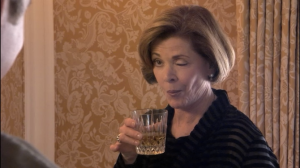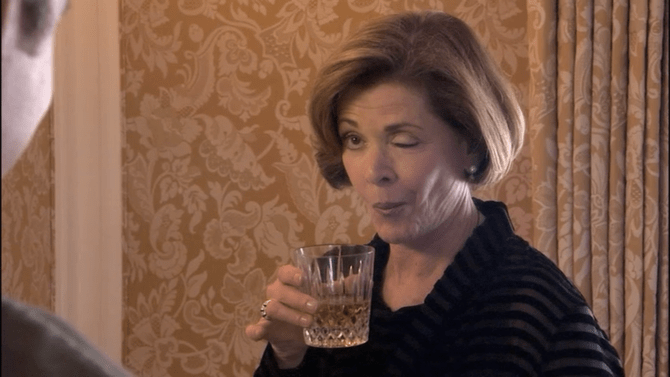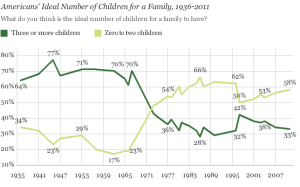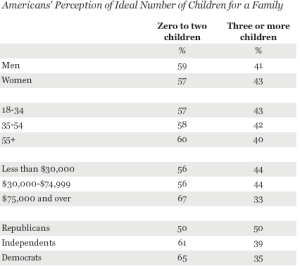by Paul Cantrell
This is the sixth installment in our editorial series: Can the Millennial Dissent?
Last time, I discussed Peter Pan Syndrome and its uncommon prevalence in our time. Now I want to take a closer look at why this current trend exists. It starts with the reigning parenting style of the time, but it hardly ends there. I’m not interested in scapegoating or passing the buck. We’re all adults now, and blaming our collective woes on Mommy or Daddy is hardly responsible, let alone constructive. But I still want to understand how we got here. So what happened to parents in the 80s and 90s?
Helicopter parents are so named because they hover—my vote was for “Hoverboard Parents,” but whatever. (For a crash-course on the subject, I recommend Sarah Kendzior‘s excellent Quartz piece.) They’re calling up camp counselors, arguing grades with college professors, and even providing actual wake-up calls to make sure their kids don’t oversleep once they’ve left the nest. They’re blowing up your phone non-stop—or as UGA’s own Professor Richard Mullendore called the cell phone, “the world’s longest umbilical cord.” They are the Helicopter Parents, and they’ve inadvertently bred a generation of Peter Pans and sundry adult children. Here’s how it started. And how it utterly backfired.
There’s arguably nothing greater in this world than a mother’s love for her child. That kind of oceanic oneness felt between a mother and her babe-in-arms forms the very foundation of Jacques Lacan’s psychological system—what he calls the Real. It’s an undeniably potent thing—a force of nature—but one that can also go horribly awry if mismanaged.
Marie-Louise von Franz, whose incredibly helpful book I mentioned last time, traces Peter Pan Syndrome to an unresolved mother complex—what she calls the “devouring mother.” “Undoubtedly mothers have always tried to keep their sons in the nest,” Franz writes, “and some sons have always had difficulty in getting free and have rather preferred to continue to enjoy the pleasures of the nest.”

Another classic scenario is when the mother—whether using overtly intrusive, domineering tactics or the more subtle, passive-aggressive kind—takes to bad-mouthing her ex in front of the child. This has the two-fold negative effect of reinforcing the child’s guilt for being such a burden to raise while also undermining the child’s relation to male authority of any kind. In either case, this behavior can often cause the child to enter adulthood completely untested and emotionally hobbled. To be sure, raising a child single-handedly can be one of life’s greatest and most rewarding challenges. Still, no one is more painfully aware of this fact than the child being raised.
 Just think of Arrested Development‘s matriarch and devouring mother par excellence, Lucille Bluth. Forget about her kids’ various psychological hangups; forget Buster as man-child (and his breastfeeding well beyond the suitable age); and think instead of the scene at the end of the episode, “My Mother, the Car.” Lucille, having manipulated her children into blaming each other after she runs one of them off the road, finally has a moment of forced (albeit faked) contrition: “Alright. I’m a horrible mother.” And after an appropriately pregnant pause, her kids all come to her aid, saying “No, no, ma. You’re great,” and “That’s crazy talk.” But she was right, and so were they. In fact, Carl Jung’s original term for the “devouring mother” was actually the “terrible mother”—not terrible as in “bad,” but as in literally terror-inducing, and basically synonymous with her “horrible.”
Just think of Arrested Development‘s matriarch and devouring mother par excellence, Lucille Bluth. Forget about her kids’ various psychological hangups; forget Buster as man-child (and his breastfeeding well beyond the suitable age); and think instead of the scene at the end of the episode, “My Mother, the Car.” Lucille, having manipulated her children into blaming each other after she runs one of them off the road, finally has a moment of forced (albeit faked) contrition: “Alright. I’m a horrible mother.” And after an appropriately pregnant pause, her kids all come to her aid, saying “No, no, ma. You’re great,” and “That’s crazy talk.” But she was right, and so were they. In fact, Carl Jung’s original term for the “devouring mother” was actually the “terrible mother”—not terrible as in “bad,” but as in literally terror-inducing, and basically synonymous with her “horrible.”
This trope is also well represented in the music and films of the time, whether it’s the overtly Oedipal Spanking the Monkey (1994); Danzig’s “Mother” (1988); The Police’s 1983 “Mother,” guitarist Andy Summers’ carnivalesque Freudian nightmare in 7/4 time masquerading as a simple 12-bar blues; or even Tracy Bonham’s “Mother Mother” (1996), a video complete with a dress-up theme akin to the opening title sequence of Blossom. There’s also the Red Hot Chili Pepper’s Mother’s Milk (1989), and of course, Ernest Scared Stupid (1991), in which mother’s milk defeats the trolls and saves the day. Still, perhaps no music video treatment of the devouring mother has been more thorough and effective than Pink Floyd’s “Mother” (1979).
 Just two years ago, Time magazine ran a cover featuring a young woman breastfeeding her 3-year old son. The story was on “attachment parenting,” a trend promoted by Dr. Bill Sears, author of The Baby Book (1993) and all-around child-rearing guru. Books like Sears’, along with What to Expect When You’re Expecting (1984), enjoyed tremendous popularity around the same time and continue to do so today, albeit despite some growing criticism. Nonetheless, the message is clear: know when to cut those apron ties, or risk accidentally raising that creepy kid from Game of Thrones, as in this brilliant parody.
Just two years ago, Time magazine ran a cover featuring a young woman breastfeeding her 3-year old son. The story was on “attachment parenting,” a trend promoted by Dr. Bill Sears, author of The Baby Book (1993) and all-around child-rearing guru. Books like Sears’, along with What to Expect When You’re Expecting (1984), enjoyed tremendous popularity around the same time and continue to do so today, albeit despite some growing criticism. Nonetheless, the message is clear: know when to cut those apron ties, or risk accidentally raising that creepy kid from Game of Thrones, as in this brilliant parody.
These books weren’t without precedent, of course. Dr. Benjamin Spock’s Common Sense Book of Baby and Child Care had by then become a veritable bible for mothers young and old and was the bestselling book of the 20th century—second only to the actual Bible. Both generations of books sought to empower mothers with knowledge. The difference is that these later texts may have inadvertently created a legion of worrywarts with crippling insecurities, whereas Dr. Spock’s aim was to instill real confidence. The first line is: “Trust yourself. You know more than you think you do.” The words “common sense” are even in the title. First published in 1946, this book was just in time for the Baby Boom. Dr. Spock had us covered. Baby? BOOM.
The media of the 80s and 90s tried to reflect the changes in the parenting landscape, particularly the rise in single-mom households. Nevertheless, the single-dad depictions seem to have far outnumbered these unsung heroines in ventures such as Mr. Mom (1983), Full House (1987-95), Blossom (1990-95), Diff’rent Strokes (1978-86) and Punky Brewster (1984-88), or even My Two Dads (1987-90). The ladies meanwhile had Kate & Allie (1984-89), Grace Under Fire (1993-98), and Who’s the Boss (1984-92), along with latter-day incarnations such as Reba (2001-07) and Gilmore Girls (2000-07).
And then there was Murphy Brown (1988-98), excoriated in Vice President Dan Quayle’s now infamous 1992 speech.
Quayle wasn’t just ripping on single moms. He was responding to the sheer brazenness of the thing—a woman choosing to be a single mother. Maude Lebowski would make a similar choice in The Big Lebowski (1998), also set during the first Bush administration: “Look, Jeffrey, I don’t want a partner. In fact I don’t want the father to be someone I’d have to see socially, or who’d have any interest in raising the child himself.”

When I was a kid, censorship was at least a family affair. I waited in my room while my mother and older sister listened to both sides of the Run-DMC Raising Hell (1986) cassette I’d just bought. I still remember awaiting the verdict by the boom-b ox in the kitchen—side A, ok; side B, no way. Or when my mom found out that Eddie Vedder said “fuck” a few times on the Pearl Jam album I’d just gotten for Christmas. We had an epic debate for three days straight, the whole way to and from school and well into the evenings. All until the third night, when my oldest sister said “I don’t see what the big deal is. I dubbed that Who Are You tape for him last year, and I bet he never even noticed the f-word was on there.” She was right; I hadn’t. This is how I got to keep my Ten CD in the 6th grade.
ox in the kitchen—side A, ok; side B, no way. Or when my mom found out that Eddie Vedder said “fuck” a few times on the Pearl Jam album I’d just gotten for Christmas. We had an epic debate for three days straight, the whole way to and from school and well into the evenings. All until the third night, when my oldest sister said “I don’t see what the big deal is. I dubbed that Who Are You tape for him last year, and I bet he never even noticed the f-word was on there.” She was right; I hadn’t. This is how I got to keep my Ten CD in the 6th grade.
Sure, we all have some incriminating Polaroid of our parents smoking cigarettes whilst crib-side or some such thing. Our grandparents aren’t immune either, and we could swap stories all day, I’m sure. Teething troubles? Just rub some whiskey on the baby’s gums. Kid won’t sleep? No problem. A nip of wine will knock that tike right out. Because sure, what’s the worst that could happen, right?
But here’s the thing. Everything turned out just fine. Each generation has some collective skeleton in its closet. But our parents sought to take out the closet altogether, and it doesn’t work like that.
Over-parenting in the 80s and 90s also stems from a fundamental shift in American reproductive trends: families got smaller. We grew up with the ideal of the big front yard, the white picket fence, and how many children? 2.5, of course. A generation earlier, couples would practically have a litter of kids just in hopes that most of them would survive. So you’d think that with medical advancements like the polio vaccine, the family sizes would have grown, but this 2011 Gallup poll clearly shows otherwise.
Something obviously happened in the early 1970s to cause such a total crisscross in the trend. Should we chalk it up to the Women’s Lib movement, which saw more women in college and pursuing full-time careers, waiting to start a family until later in life, if at all? Or maybe it was the legalization of The Pill and abortion, along with a general loosening of attitudes toward contraception. 1970 is also when the No-Fault Divorce appeared, introduced by California Governor Ronald Reagan on New Year’s Day. This is when “irreconcilable differences” became a thing. Until then, most states required couples to prove infidelity or abuse. Come 1970, all those people trapped in loveless marriages finally had a way out. This too led to fewer children.
The truth, however, is that there was an even greater paradigm shift taking place. It involves what scientists refer to as semelparity and iteroparity—fancy words for reproducing once versus several times. There are benefits to each strategy. We can all rather easily conjure up images of Hispanic, Italian- and Irish-Catholic families with a dozen kids apiece. But think too of the old-money, WASP family in the house on a hill across town. Having fewer children is central to maintaining the succession of that inherited wealth across the generations, as opposed to dispersing it among a larger group of children. This is just part of how rich families have managed to stay that way.
There’s also the matter of “bet-hedging”—that is, why put all your eggs in one basket when you could have a larger pool of children to mitigate certain risk factors? What if one of them turns out to be a bad apple or a black sheep? Well, the overwhelming answer was to have fewer children and then ensure they turned out right by giving them your undivided attention. The result? Total overkill.
“From 1981 to 1997,” generational sociologists Strauss and Howe write, “‘free’ or ‘unsupervised’ time in the typical preteen’s day shrank by 37 percent.” From 1975 to 1995, they continue, bike riding declined 60 percent, no doubt in part because parents no longer let their kids roam free. Fewer teenagers work, because they’re so busy going from one adult-supervised activity to another. And if kids do seem raucous or uncooperative, the authors point out, we often simply medicate them: “Where young boomers once turned to drugs to prompt impulses and think outside the box, today they turn to drugs to suppress their kids’ impulses and keep their behavior inside the box.”
Right smack dab in the middle of this 20-year span came the Baby on Board sign, first marketed in September 1984 and all but ubiquitous by 1985. By 1988, George Carlin had summed up the matter in classic fashion:
Trick-or-treating has been a Halloween tradition in America since the 1920s, yet we are the first generation of children denied access to our Halloween haul until after our parents had first inspected it. Turns out this threat was a total bogeyman to start with—completely non-existent.
The fear-mongering didn’t end there. Between Nancy Reagan’s “Just Say No” crusade, the “D.A.R.E to Keep Kids Off Drugs” campaign, and the sudden rise in related PSA’s, the media had every parent scared stiff that their Honor Roll kid was somehow going to end up dead in a ditch, needle in arm. Coincidentally, this is also when those “Proud Parent of an Honor Roll Student” bumper stickers started turning up on the back of every minivan in town. It’s also when minivans themselves became a thing, along with the Soccer Mom.
The Honor Roll bumper sticker is a classic case of what’s known as Basking in Reflected Glory. More importantly, it helps us glimpse the narcissism at the heart of helicopter parenting. Encouraging your child to study hard is one thing, but I never knew any kid growing up who begged his mom or dad to then broadcast this achievement to a sea of strangers through a bumper sticker. That’s what bringing your report card to Pizza Hut was for.
No, the narcissism here is solely the parent’s. It screams Look at me, Mom of the Year. While everyone else thinks, Yeah, look at you. Showboating around like you didn’t do half the kid’s homework yourself. And those “My Kid Beat Up Your Honor Student” rebuttal stickers are no better—just advertisements that your kid’s a bully to compensate for not being as smart, but it’s OK ’cause you’ve got his back. Again, it’s about the parent, not the child.
There’s an element of keeping up with the Joneses at play here as well. That is, if everyone on the block is completely micromanaging every detail of their kids’ lives, then it suddenly seems normal. More importantly, it starts to seem criminally negligent not to “take an interest” and generally be all up in your kid’s shit 24/7. After all, what would the neighbors say?
This is why those Facebook memes exist—ones like “Share if you drank out of the garden hose, rode a bike without a helmet, and spent every day playing outside until the streetlights came on.” It was a badge of honor to have parents who left us to our own devices rather than hovering over our every move. Because it meant that they trusted us—to make mistakes and learn from them, to figure some things out on our own, and to make it back home in one piece. “Go play outside” wasn’t a punishment; it was a privilege.
Our parents did their best. True, they may have overshot the mark, but that still beats the alternative. As I said before, it’s on us now. That’s all for this time. Now go call your mom.




This was such a fun and informative read. And I struggle with reading more than a few paragraphs lately, so really, a truly must read piece!
LikeLike